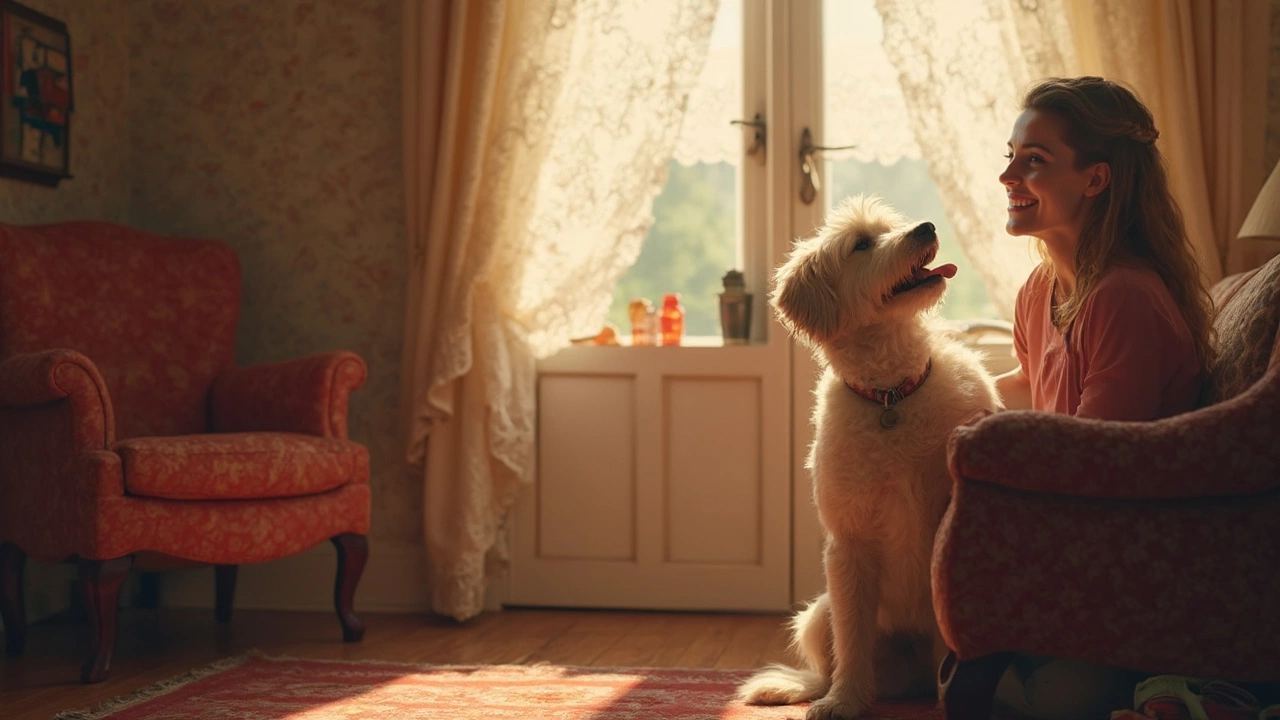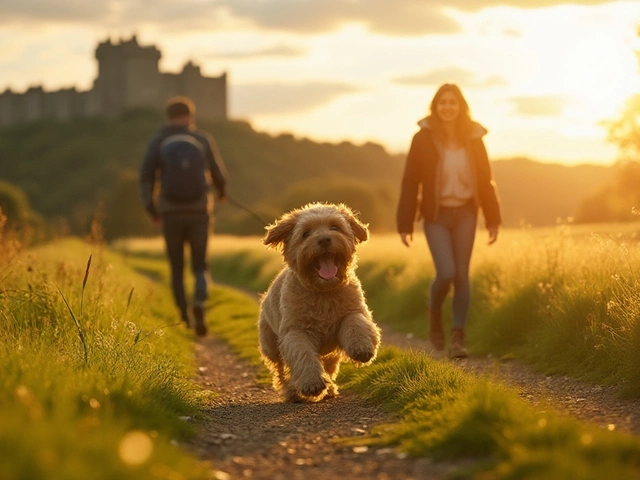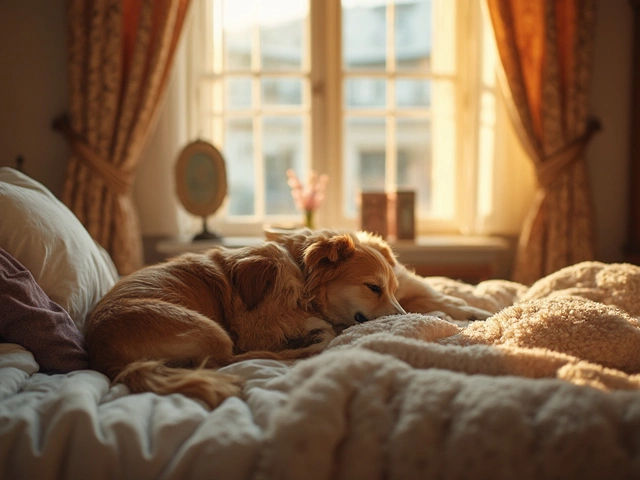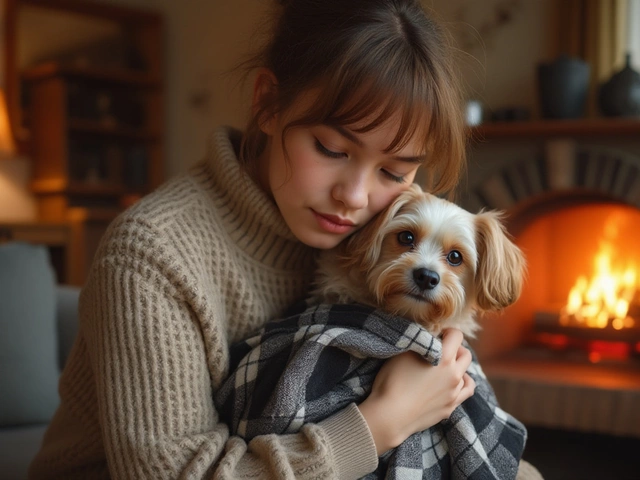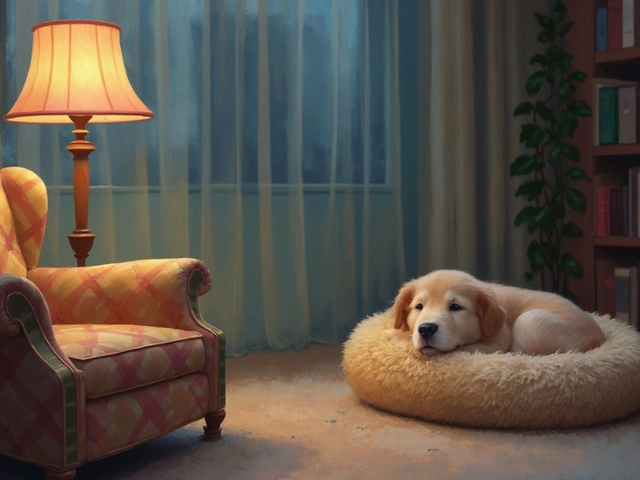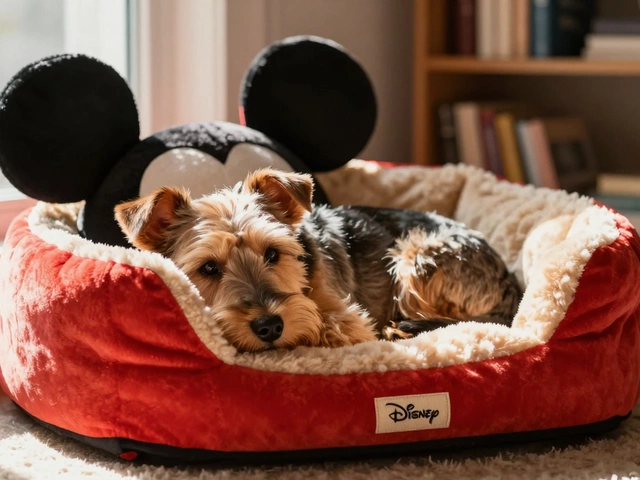Ever notice how a dog doesn’t just wag its tail or jump around when it’s happy? Licking is a huge part of the way dogs interact with us—and it’s not always as simple as a dog just saying hello. Sometimes it means they’re happy, other times they’re looking for comfort or attention. And yep, if your dog is always licking you when you’re chilling on the couch or getting ready for bed, your dog bed or sofa might play a part in their routine.
Licking starts early—puppies get licked by their moms as soon as they’re born. It helps clean them, keeps them safe, and shows them everything is okay. So when your dog turns that attention on you? They’re tapping into instincts that go way back. It’s basically their love language, wrapped up in a slobbery package.
- Why Dogs Lick In the First Place
- When Licking Means Love
- Stress, Anxiety, and the Licking Habit
- Health Signals You Shouldn’t Ignore
- The Role of Dog Beds in Licking Behavior
- How to Respond: Encouragement and Redirection
Why Dogs Lick In the First Place
You see your dog come over, tail wagging, and next thing you know—you're getting a face full of slobber. But why do dogs lick us at all? Turns out, licking is baked into dog DNA. It's not just about saying hi or looking cute. This behavior goes way back to when puppies were tiny and needed their mom to clean them up, help them feel secure, and even help them pee and poop. So licking is one of the first ways a dog learns to connect.
As dogs grow up, licking sticks around. Adult dogs lick each other to show respect, ask for food, or just bond. When they turn their attention to people, they could be doing any of those things—or all of them at once. Scientists have even found that licking can help dogs relax. Licking releases endorphins in the brain, which make dogs feel calm and safe. So sometimes your dog is licking you just because it feels good to both of you.
Some experts say licking is like a dog’s version of a handshake, especially when you get home or when you're hanging out in their favorite spot (maybe that comfy dog bed in the corner). They’re saying, "I’m cool with you, you’re safe here." If you taste salty from sweat or you've just eaten something tasty, that’s basically a bonus snack for them.
Check out the most common reasons dogs lick:
- Showing affection
- Grooming (themselves or their favorite humans)
- Seeking attention
- Expressing hunger or asking for food
- Soothing themselves if they’re stressed
Some numbers for the data-minded: Studies from major animal behavior groups say around 80% of pet dogs regularly lick their owners. Here’s a simple look at why:
| Reason | Percent of Licking Cases |
|---|---|
| Affection/Attachment | 55% |
| Attention Seeking | 20% |
| Exploring/Taste | 15% |
| Stress Relief | 10% |
So when you wonder about dog licks, it's not just random. It’s a throwback to their earliest days, a way to bond, and sometimes just a way to try and score a little treat. Next time it happens, you’ll know it means more than you think.
When Licking Means Love
Most of the time, when your dog licks you, it’s their way of saying “you matter to me.” Dogs pick up this habit as pups with their littermates and mom, and it sticks because it works. It’s one of those universal dog gestures that signals affection, acceptance, and connection inside the pack—human family included.
There’s some science behind this, too. Licking releases endorphins in your dog’s brain. These are natural chemicals that help your dog feel happy and relaxed. So every time your dog licks you, it’s like they’re getting a little dose of joy. Pretty hard to get annoyed by that when you think about it.
Here’s something many people don’t realize: dogs have taste buds for salt, so if you’ve got sweaty skin after a workout, you might be extra appealing. But it’s not just about flavor. Your scent is a huge comfort to them, especially if you spend a lot of time together. That’s why some dogs snuggle right up in your bed or next to your favorite spot on the floor and just go to town licking.
Want to tell if your dog is licking out of love and not stress or boredom? Look for loose, wiggly body language. A happy tail, soft eyes, maybe a goofy grin—dogs wear their emotions pretty clearly. Quick tip: if your pup usually licks you while snuggled up in their favorite dog bed, that’s a sign they’re feeling completely safe and content. That’s when dog licks really mean something good.
Stress, Anxiety, and the Licking Habit
Licking isn’t always about love or leftover flavors on your skin. Sometimes, dogs lick way more than usual when they’re stressed out or anxious. This is where you really need to be watchful, because too much licking—especially on objects, their paws, or even your hands—can point to something bothering your pup emotionally.
Lots of vets and dog trainers say licking can actually feel soothing for dogs, almost like how some people bite their nails when they're nervous. This is pretty common during thunderstorms, when guests visit, or when your dog is left alone for stretches of time. You’ll see some dogs start licking right as you’re packing up to leave for work, for example.
There are even studies showing that dogs with separation anxiety tend to use licking as a way to cope. If you come home to find slobber on the couch or dog bed, your pup might’ve been trying to calm themselves when you were gone.
- Check how often and where your dog licks. Are they focusing on themselves, their dog beds, or you?
- Notice any triggers. Do certain sounds or changes in the home set off the licking?
- Make sure your dog has a comfy, safe zone like a favorite dog bed to retreat to during stressful moments.
- If licking is constant or leads to raw spots, it might be time to talk to your vet or a trainer. They can suggest ways to help your dog manage their nerves.
When you catch your dog licking out of stress, try distractions like toys or a walk. Sometimes swapping the focus to something fun or calming can break the cycle before it turns into a hard habit.
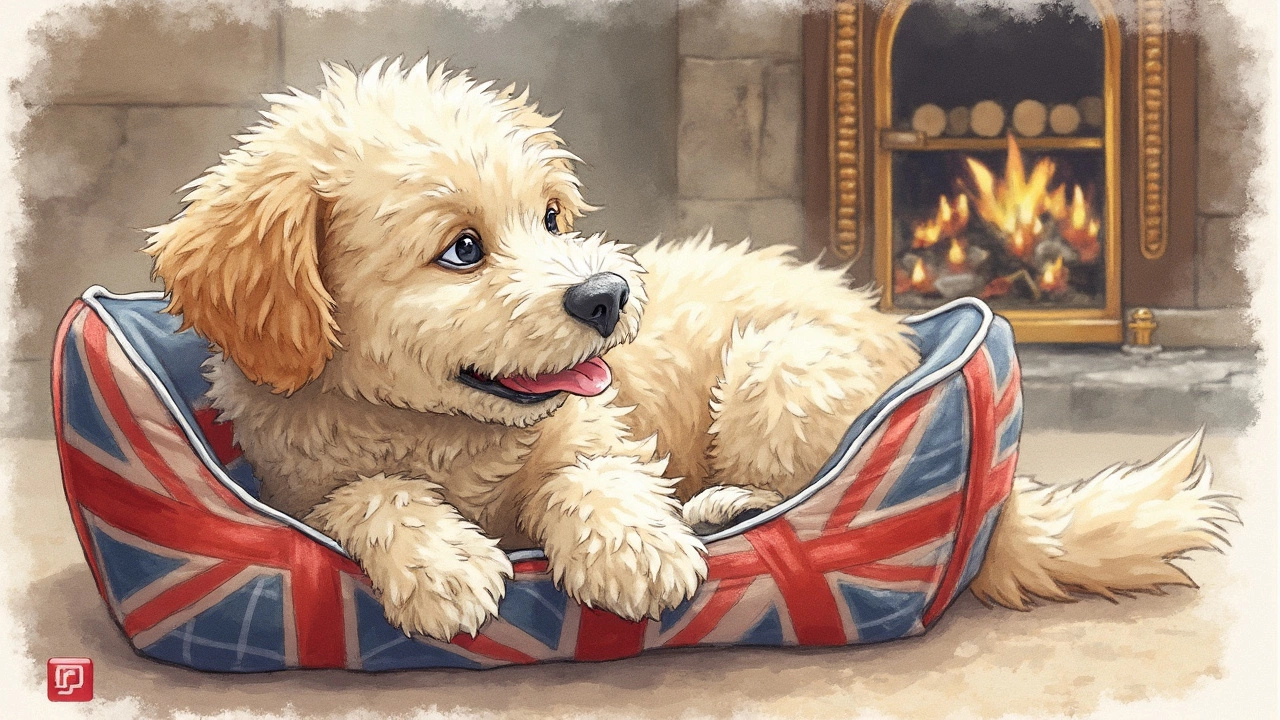
Health Signals You Shouldn’t Ignore
Most of the time, dog licks mean nothing more than affection or habit. But if your pup suddenly starts licking you nonstop, or adds a constant licking of themselves, something might be up with their health. Ignoring these signs can lead to bigger issues down the line.
One big thing to watch for is obsessive licking. If your dog can’t stop licking you, the air, their paws, or even their dog beds, there could be allergies, skin infections, or pain somewhere you can’t see. Sometimes, dogs lick because they’re nauseous or have dental pain. If your dog’s breath suddenly smells super bad, or they flinch when eating, it’s time to take a closer look.
Another red flag: if licking always focuses on one area. That can mean a hotspot, wound, bug bite, or stuck thorn. Don’t just write it off as quirky behavior. Get hands-on and check their skin, paws, or mouth for anything odd.
- See your vet if licking is new, excessive, or paired with hair loss, redness, or swelling.
- Monitor for other changes—like less appetite, hiding, whining, or sudden tiredness.
- Notice if licking only happens after certain foods or walks—a clue for allergies or irritants.
Catching these things early saves a lot of hassle. And it makes sure your dog isn’t struggling with something serious under your nose. Bottom line, pay attention to licking that pops up out of nowhere or won’t stop. Your dog’s trying to tell you something, and it’s worth listening closely.
The Role of Dog Beds in Licking Behavior
Most folks don’t realize a dog’s bed can quietly impact their licking habits. Dogs treat their beds almost like a safe zone—a base camp where they feel happiest and calmest. So, if your dog spends time licking themselves or even licking the bed itself, that’s usually them soothing themselves or working through stress. It’s kind of like a security routine.
Here’s an interesting piece: Some dogs pick up the habit of licking their bed or the blankets when you’re gone, just to feel closer to you. Beds soak up all sorts of familiar smells, and dogs love that. Dog licks are a way for them to feel connected with their favorite human, especially in your absence. If your dog moves between licking you and their bed, they’re probably just comforting themselves with what they know and love best.
Dr. Marc Bekoff, a well-known canine behavior expert, puts it like this:
"Licking objects like dog beds often isn’t random—dogs are using scent and touch to ground themselves, especially if something in their world feels a little off."
Some beds are made with plush, fuzzy fabrics, and that texture invites licking even more. You might notice a stronger urge if your dog’s bed comes with your old T-shirt or a blanket you use—those items just crank up the comfort for your dog and remind them you’re around.
If you do spot your dog licking their bed non-stop, though, keep an eye out for boredom or anxiety, especially if it’s a new behavior. In those cases, it helps to:
- Give your dog more play or exercise sessions.
- Switch up toys on the bed every few days for something fresh.
- Wash their bed regularly to remove scents that can trigger obsessive licking.
- Offer gentle redirection if licking disrupts sleep or goes out of control.
Sometimes, changing up bedtime routines or even the style of bed (switching to a firmer or smoother texture) can break the pattern. Always watch for other signs, like chewing the bed apart or acting restless; the licking might be just one part of a bigger issue.
How to Respond: Encouragement and Redirection
If your dog goes wild with licking, you’re not stuck just crossing your fingers and hoping they’ll stop. How you react can actually shape their licking habit in a big way. Let’s break it down so you can make a difference—without confusing your dog.
The first thing to remember: when your pup starts licking, what you do right after matters. Dogs pick up on your actions faster than you might think. If you laugh or scratch their ears, you might be teaching them that licking is a ticket to cuddles—or attention.
- Dog licks should only get a reaction you actually want to encourage. Ignore licking if you want it to happen less, or say a calm ‘no’ and gently move away.
- Don’t punish your dog. Harsh words or actions just shake their trust. Just stay boring or unresponsive if you’re not a fan of the licks.
- If your dog is licking out of stress or boredom, give them something else to focus on: a chew toy, a treat puzzle, or a new command like “sit” or “down.”
Want your pup to lick less? Staying consistent is key. Gideon (my kid) tried ignoring our family dog’s licks for two weeks straight, and now the dog just chills next to him instead. Dogs notice patterns—stick with it.
If you’re cool with affectionate licks but want to keep it under control, consider rewarding calmer behavior instead. Offer praise or treats when your dog sits quietly beside you without the licking spree.
| Approach | Tips | Effects |
|---|---|---|
| Ignore unwanted licking | Stand up or move away. Avoid eye contact. | Reduces licking over time. |
| Redirect to toys or treats | Give a favorite chew or interactive toy. | Channels energy into positive activity. |
| Reward calm | Give a treat or praise for relaxed, non-licking behavior. | Increases calm, focused moments. |
One more thing: sometimes, licking signals something else (like anxiety or skin issues). If your dog suddenly starts licking you or their bed like crazy, talk to your vet. Data from the American Veterinary Medical Association shows that about 6% of vet visits are related to odd repetitive behaviors like excessive licking. Getting an expert’s take can help you rule out health problems fast.

